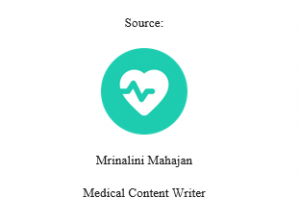Nutrition is a very important part of health and development. Maintaining health and fitness is regarded as one of the hardest challenges. Often it is observed that many people frequently complain about having little time for activities that are linked to health and fitness. Better nutrition is related to improved infant, child, and maternal health, stronger immune systems, safer pregnancy and childbirth, lower risk of non-communicable disease, and longevity.
People with the right nutrition are more productive. Your daily food choices make a big difference in your health. Malnutrition poses significant threats to human health. Today the whole world faces a burden of malnutrition which includes both undernutrition and overweight, especially in low and middle-income regions.
What is good nutrition?
Good nutrition means that you consume all the nutrients, vitamins, and minerals in the right quantity. You must plan your meals and snacks accordingly to include nutrient-dense foods which are low in calories. Good nutrition is very important for our body and processes. Nutrition is important to boost your immunity and give you the ability to fight against diseases.
Let us have a look at the tips for good nutrition:
- Eat plenty of fruits: to get the benefits of natural fibre in fruits, consume whole fruit rather than juices.
- Eat plenty of vegetables: eat a variety of vegetables every day.
- Eat plenty of whole grains: choose cereals, bread, and pasta that are made from whole grains.
- Choose low-fat or fat-free milk: it helps in providing calcium and vitamin D to help keep your bones strong.
- Choose lean meats: lean cuts of meat and poultry have less fat and fewer calories and are still good protein sources.
Often it is observed that with growing age, people start facing nutrition problems. Let us understand how we can fix some common eating problems:
- Food no longer tastes good: if you are facing this issue, then you must try new recipes. This happens as some medicines affect your appetite or sense of taste.
- Chewing difficulty: you must try softer foods such as cooked vegetables, beans, eggs, etc.
- Poor digestion: you must eat everything which complies with a balanced diet.
Why is nutrition important?
Essential nutrients are important in supporting a person’s good health, reproduction and growth. The essential nutrients that must be consumed include vitamins, minerals, protein, fats, water, and carbohydrates.
- Vitamins: these are micronutrients that offer a different range of health benefits such as boosting the immune system, helping prevent or delay certain cancers, strengthening teeth and bones, aiding calcium absorption, maintaining healthy skin, and helping the body metabolize proteins and carbs.
- Minerals: these are essential micronutrients with two groups of minerals i.e., major and trace minerals. Essential minerals include magnesium, calcium, phosphorus, sulphur, sodium, potassium, and chloride.
- Protein: this is a macronutrient that helps every cell in the body to function properly. Proteins carry distinct functions such as ensuring the growth and development of muscle, bones, hair, and skin. This helps in forming antibodies, hormones, and other essential substances.
- Fats: provide the body with energy and help in carrying out a different range of functions. It is beneficial to consume healthy fats such as monosaturated and polyunsaturated fats.
- Carbohydrates: carbohydrates are essential for the body. They are sugar or starches which provide energy for all cells and tissue in the body. People must limit their intake of simple carbohydrates.
- Water: water is the most important nutrient which a person needs. Slight dehydration can cause headaches and impaired physical and mental functioning. Water helps with various functions such as flushing toxins out, shock absorption, transporting nutrients, etc.
What are the benefits of Good Nutrition?
Eating healthy food helps in maintaining weight. Let us have a look at some of the benefits of good nutrition:
- Maintains good heart health: High blood pressure aka hypertension is becoming a significant global health issue. Heart attack, heart failure, and strokes result from this condition. Increased physical activity and eating well will help people in avoiding these conditions up to 80%. A balanced diet full of fruits, vegetables, whole grains, and low-fat dairy will help in lowering the risk of heart disease by managing blood pressure and cholesterol level.
- Improves well-being: a balanced diet includes foods from various food groups which helps in maintaining good health and well-being. The right food will help in providing you with the energy you need for the entire day. Balanced food helps in increasing concentration and helps you in sleeping better.
- Maintain immune system: for this, you require essential vitamins and minerals. A balanced diet will help you in maintaining a healthy immune system and protect you from several infections.
- Increase energy level: by avoiding blood sugar variation by cutting out extra fats, sweets, and refined carbs. The healthiest source of carbs includes whole grains, fruits, and unprocessed vegetables. Smaller meals also support energy maintenance. A healthy breakfast offers you energy for rest of the day.
- Delay the effect of aging: specific vitamins and minerals are healthy for the skin. Food such as tomatoes, berries, avocados, almonds, and seafood are unbelievably valuable. Some foods help in collagen synthesis, and this helps in delaying the onset of premature aging.
Tips to Stay Healthy and Fit:
- Eat a healthy breakfast: the morning meal must be healthy and nutritious because it energizes you for a wonderful day ahead. This meal refills the blood sugar in the body giving the energy necessary to start a new day that is good for physical and mental health. This helps in better concentration, and problem-solving skills and also having an active life. Often it is seen that many people skip breakfast. Skipping breakfast is the worst idea as it can make you susceptible to gaining weight and increase the risk for heart disease, obesity, high cholesterol, etc. So, enrich your day and body with a healthy and balanced breakfast with all nutritious options like milk, yogurt, oats, etc.
- Fill your plate with fruits and veggies: Fruits and veggies are the best sources of essential vitamins and minerals. Low-calorie dietary food fills your stomach with lots of fiber helping you in weight management. They are immunity boosters and also help you in decreasing inflammation, lower cholesterol levels, and control blood pressure.
- Focus on making a meal routine: Develop a sensible meal routine for planning the meal wisely and choose healthy options such as protein bars, makhanas, bajra puffs, etc. Avoid bad eating habits like stress eating, overconsumption of sugar and sugary products, munching processed foods, etc. You must limit your caffeine intake and hydrate yourself with healthy options such as water, lime juice, coconut water, smoothies, etc as it will increase calories leading to health issues.
- Add physical activity to your routine: Physical activities are very important for maintaining a healthy metabolism, improving the sleep cycle, promoting blood flow delaying the signs of aging. A morning walk, yoga session, or gym routine and a walk after your meal especially post dinner has the potential to improve your mood and decrease the feeling of depression, anxiety, and stress.
- Keep a regular check on your vitals: deficiency of Vitamin D3, and Vitamin B12 is often seen in many people. The deficiency of this vitals is very alarming as it has a direct impact on one; brain, bone, and hormonal health. Undergoing preventive health check-ups or taking regular tests will help in better knowing the numbers. For overcoming these vital deficiencies, you must spend more time in the sunlight, and eat mushrooms, milk, and dairy products. If the deficiency is more, then you must consume supplements with a doctor’s advice.
- Staying hydrated: for attaining optimum health, proper hydration is essential. Hydration can boost performance, minimize fatigue and exhaustion, help in digestion, and reduce muscle soreness. Dehydration in the body is associated with numerous diseases.
Conclusion:
You must consume diverse types of essential nutrients for ensuring the best possible health. These nutrients support vital functions such as growth and immunity and prevent disease. Individuals who consume a balanced diet will acquire all the valuable nutrients.
A nutritious diet supports growth, development, maintains healthy body weight and lowers the chance of developing chronic diseases. It also contributes the overall health and well-being. If anything seems out of balance, you must see a dietitian or nutritionist and go for tests to evaluate nutritional imbalances.

